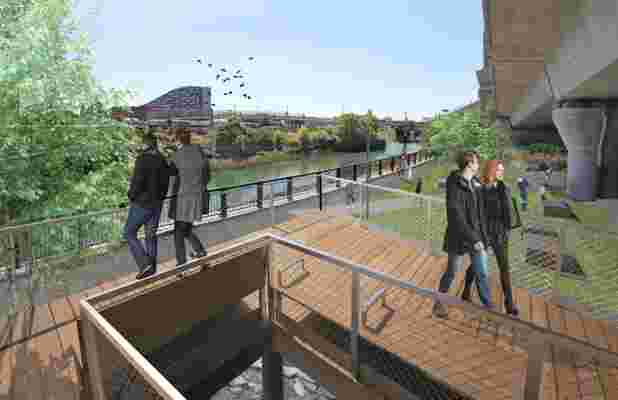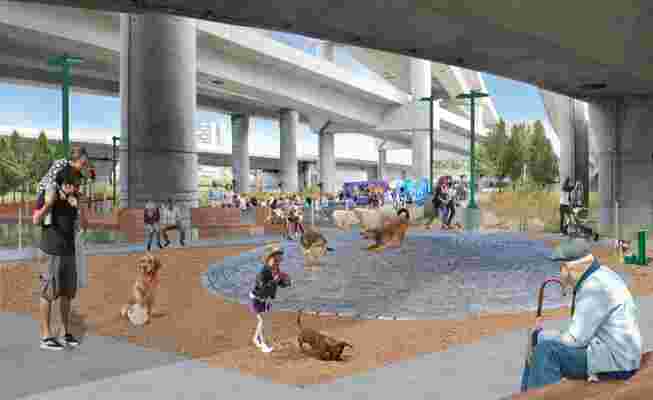Boston Is Now Building Public Parks Under Interstate Highways
On Wednesday, the Massachusetts Department of Transportation and National Development announced plans for Ink Underground, an urban park that will span eight acres partially under Boston's Interstate 93. Stretching from Albany Street to the Fort Point Channel, the park will serve as a connector between the South End and South Boston neighborhoods via pedestrian boardwalks, art and cultural installations, and bicycle paths along the channel.
"This area under the highway is a very dramatic space that has been off-limits for many years," says Marie Adams, designer and co-founding partner of Landing Studios, which designed the space. "So a major objective for us was simply to create access to this infrastructural landscape in a dynamic way." Visitors can take advantage of everything from public art walls and a dog park to a night market and pop-up food and beverage experiences. The space will also offer a bike storage facility and 175 parking spaces, as well as a 205-room Marriott hotel. "The project is a new model for how infrastructure can be multifunctional—that instead of being a marginal or forgotten space in the city, a highway viaduct can provide new public spaces for recreation, greater urban connectivity, and also manage storm water runoff through the design of the landscape," Adams continued.

The walkways will connect several Boston neighborhoods.
National Development is the creator of the neighboring Ink Block, a seven-building mixed-use development that combines everything from luxury condos to one of the highest-performing Whole Foods Markets in the country. While the once-gritty South End has transformed into a highly-coveted neighborhood for real estate and restaurants, the stark, sprawling underpass has continued to be a sea of unkempt pavement. "The site was locally known as a dangerous no-man's land, a haven for drug dealers, prostitution, and violence," says Robin Blatt, financial analyst and program manager for MassDOT. "To some, the property had become hands down the most frightening part of the city."

The project will include a dog park.
But with the massive change afoot, the area is set to undergo a significant transformation. For National Development, this is a prime opportunity to expand its control of the territory while differentiating itself from the plethora of luxury condos that are currently popping up on every corner in Boston. "Our bid included an aggressive plan to curate urban art, create lively events, and bring energy to the space," says Ted Tye, managing partner of National Development. "We transformed an industrial neighborhood by embracing its grit in our architectural design rather than by pushing it away."